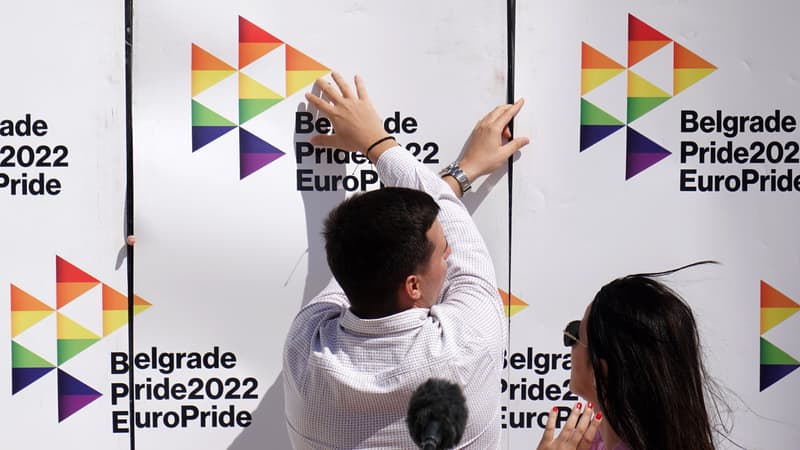Representatives of the LGBTQ community announced on Friday that they would parade the next day in Belgrade on a shorter route despite a ban on the Europride march by Serbian authorities.
Serbia, a candidate country for the European Union, has been under intense international pressure since it banned the parade, the highlight of Europride, a pan-European event held in a different country each year.
“We have been forced into a situation where we have no choice. Despite the ban, we will unite,” Goran Miletic, one of the Belgrade Pride organizers, told reporters.
The organizers presented a petition to the Serbian government having collected about 30,000 signatures according to them.
They agreed to considerably shorten the route of the parade scheduled for the end of the afternoon but uncertainty persisted about its celebration, reaffirming the Serbian president, Aleksandar Vucic, that the prohibition of demonstrations dictated by the Ministry of the Interior would be respected.
Anger of several Western ambassadors
Rights NGOs across Europe denounced the Belgrade decision, while more than 20 embassies in Belgrade, including those of the United States, Germany, France and the Netherlands, Canada or Japan, called on Friday for a “solution that allows a march of Europride in safe conditions”. , legality and peace”.
“We support the fight against hate speech, violence and discrimination against LGBTIQ+ people and communities in all regions of the world, including Serbia,” the joint statement from the embassies said.
The Home Office had formally banned the march on Tuesday citing security concerns, with far-right groups threatening to hold an anti-Pride protest. He also banned counter-demonstrations.
In Serbia, deep-seated homophobia
Serbia has been an EU candidate for a decade, but member states have raised concerns about its human rights record over the years.
The ban came after Aleksandar Vucic requested it in late August, citing tensions with the former Serbian province of Kosovo or energy concerns.
The marriage of same-sex couples is not legal in the country of less than seven million inhabitants where homophobia is deeply rooted despite some progress against discrimination. The 2001 and 2010 Pride marches were marred by violence after being attacked by the far right.
A few days ago, thousands of people, biker gangs, Orthodox priests and far-right nationalists took to the streets to demand the cancellation of the parade. In far-right cat groups on social media, users called for demonstrations in front of churches against Europride on Saturday.
Source: BFM TV


